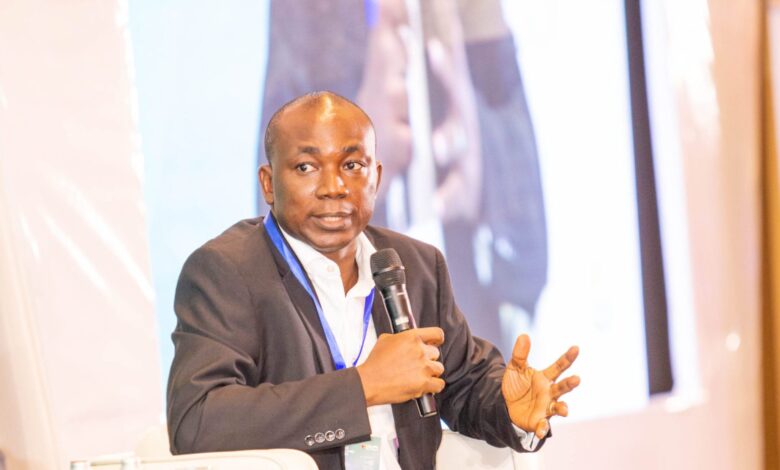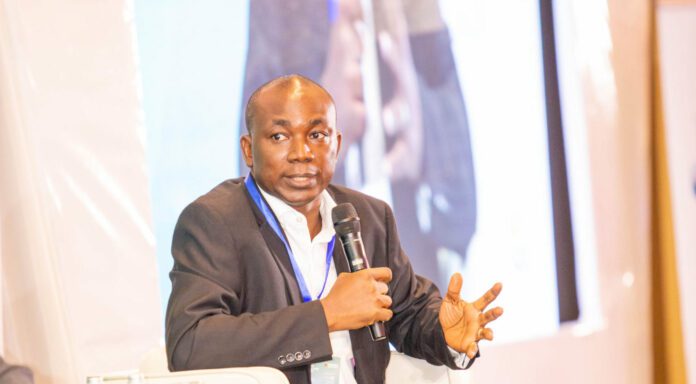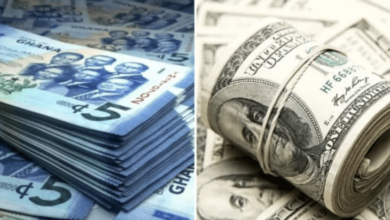Cedi will take a rest and continue the fall – Prof. Bokpin on Cedi depreciation

Economist and Professor of Finance at the University of Ghana, Godfred Bokpin, has observed that the Ghanaian Cedi will witness short-term stability and continue depreciating again.
According to the Bank of Ghana’s data, as of Friday, May 10, the Cedi was selling at 13.68 to the US dollar and 17.11 to the British Pound. However, the rates are higher at various Forex bureaus.
The Finance Minister, Dr. Mohammed Amin Adam, while addressing the press at the end of the IMF Spring meeting in Washington, D.C., in April, noted that the Cedi had “stabilised strongly against major trading currencies since January 2024 to date”.
He attributed this to the prudent measures taken by the Bank of Ghana (BoG) and the Finance Ministry.
He said the cedi depreciated by 8.3 percent within the first three and a half months of the year. The current rate shows a decline from 21.5 percent, which was recorded within the same period in 2023.
Bank of Ghana seeking to hand over Gold for Oil programme to a commercial bank – Dr Addison
But Prof. Bokpin, speaking on the Cedi depreciation on Accra-based Joy FM, maintained that the Cedi had shown such instability since its inception nearly six decades ago.
Responding to whether the Cedi will witness some long-term stability, he said, “It will take a rest and then it will continue to depreciate.”
“There will be relative stability and then the depreciation will continue. That has been the pattern of the Cedi since it was introduced in July 1965. Even if we did everything, we still expect that the Cedi will depreciate by a certain margin given the relative strength of our economy, given the other economies that we interact with and that will only be consistent with the objective of price stability.
READ ALSO:
He added, “Price stability is not the same price over time and therefore some level of volatility would be experienced if we were to do everything right both from the fiscal side and the monetary side.”
The Economist further underscored that the managers of the economy have not significantly improved the macroeconomic indicators over the years, contributing to the continued fall of the currency.
“Unfortunately, we have not been able to support the Cedi with the necessary sound macroeconomic policy-making, including responsible fiscal management and prudent monetary policy.
“Over the years we have denied the Cedi these basic rights and then we expected the Cedi to do magic,” he said, adding that “the Cedi’s behaviour is a reflection of some underlining fundamentals.”
Meanwhile, the Director of Communications of the New Patriotic Party (NPP), Richard Ahiagbah, has said that the Cedi will no longer fall against the major trading currencies, especially the dollar, should the flagbearer of the NPP, Vice President Dr. Bawumia, be elected president this year.
He explained that a Bawumia administration would leverage the mineral resource, gold, to shore up the strength of the Cedi.
“Be Bold with Bawumia. He will use our gold to back the cedi to make it stable. This is a Bold solution to stabilize the cedi. Depreciation will be a thing of the past because the cedi will be sufficiently stable under Bawumia,” he wrote in a post on X.







